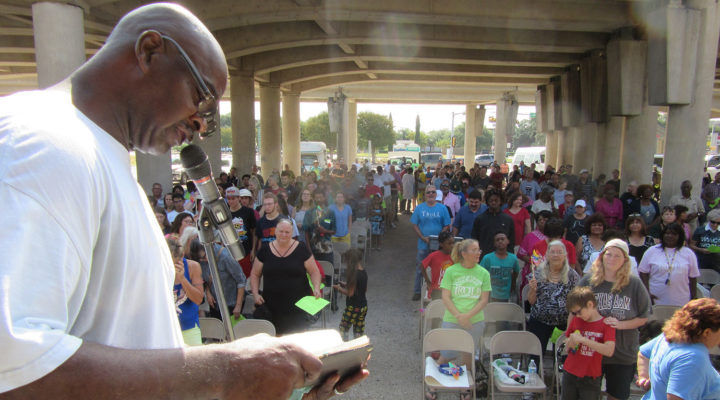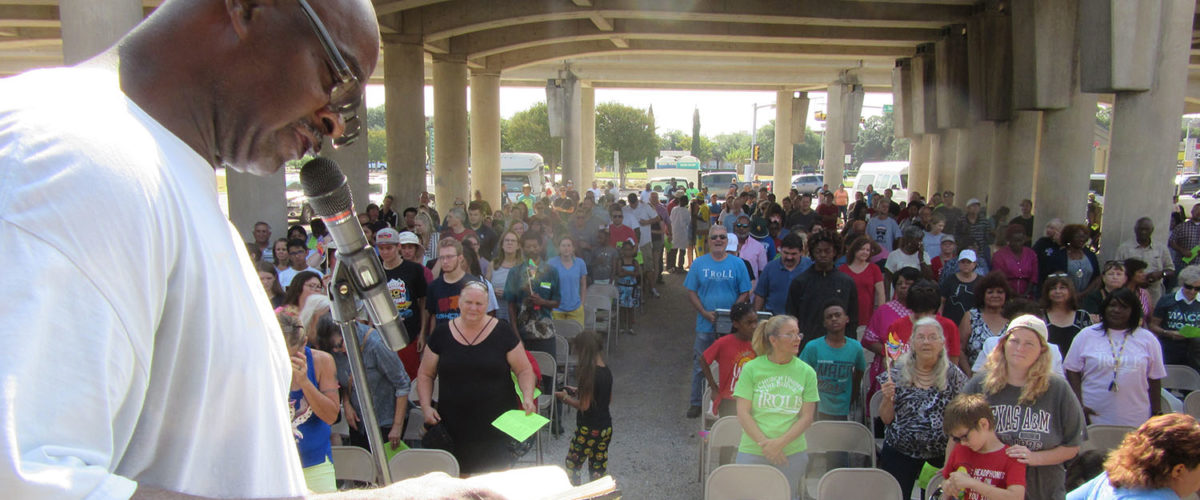Worshiping with drug addicts and sometimes-disruptive schizophrenics wasn’t the way Jimmy Dorrell envisioned his calling while growing up in Conroe, Texas, in the 1960s.
“I grew up in the Baptist church a classic Pharisee kid,” said Dorrell, today 67 and pastor of Church Under the Bridge in Waco, Texas.
That meant checking off the boxes of righteousness. He had seven years of perfect Sunday school attendance and memorized Bible verses.
“And I didn’t cuss.”
He also remembers a moment during the civil rights movement when rumors spread in the congregation that blacks were coming to worship. The nervous membership was assured the deacons would never let that happen.
“I grew up in a culture where we defended injustice,” he said.
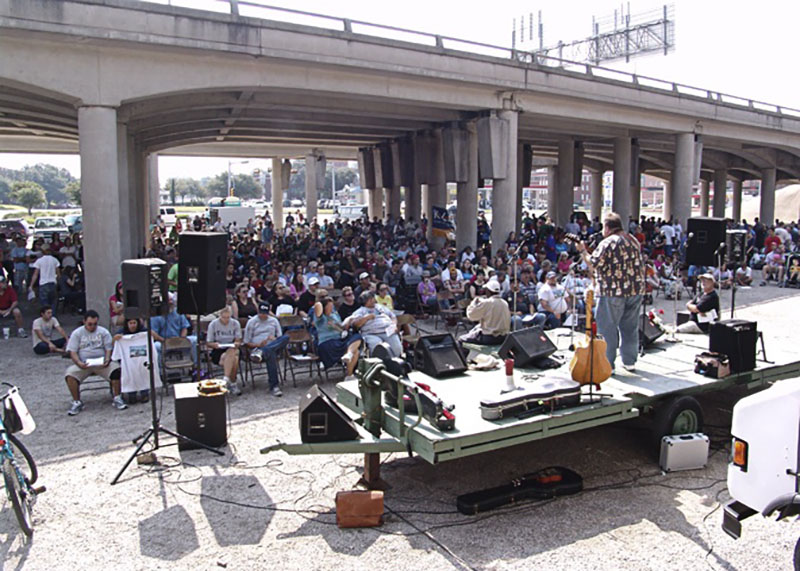
Worship is eclectic at Church Under the Bridge in Waco, Texas. All variety of bands play from week to week.
How things have changed for Dorrell and his sense of call.
Not long after launching Mission Waco, Mission World, Dorrell and his wife, Janet, started Church Under the Bridge. That was Sept. 20, 1992.
It began with a handful of people who were homeless gathered beneath an Interstate 35 overpass. Now attendance spills well beyond the concrete highway overhead.
Dorrell spoke with Baptist News Global about the evolution of Church Under the Bridge.
When did your calling, and your understanding of the role of the church, begin to change from childhood conceptions to what it is today?
I became a youth director [at Highland Baptist Church] in Waco while attending Baylor and I got a call from Pastor Dewey Pinckney at St. Mary’s Baptist Church. I didn’t know you could have a St. Mary’s Baptist church. He asked me to bring the youth group to his church in what many considered No Man’s Land. … I was faced with my own racial duplicity and the reality of the kids who needed us there. It reshaped my sense of call. … I was really struggling in my faith journey. I believe in church but felt we weren’t really in the middle of the world Jesus would be in.
How has the church changed in these past 25 years?
It started with just five homeless guys, then 12 then 20. Janet played guitar. Then a Baylor kid showed up. It’s just kept evolving. It’s not a church for the poor, it’s church with the poor. They started calling it Church Under the Bridge. … And we are a church. We’ve had 40 to 50 weddings and we have 12 small groups that meet during the week
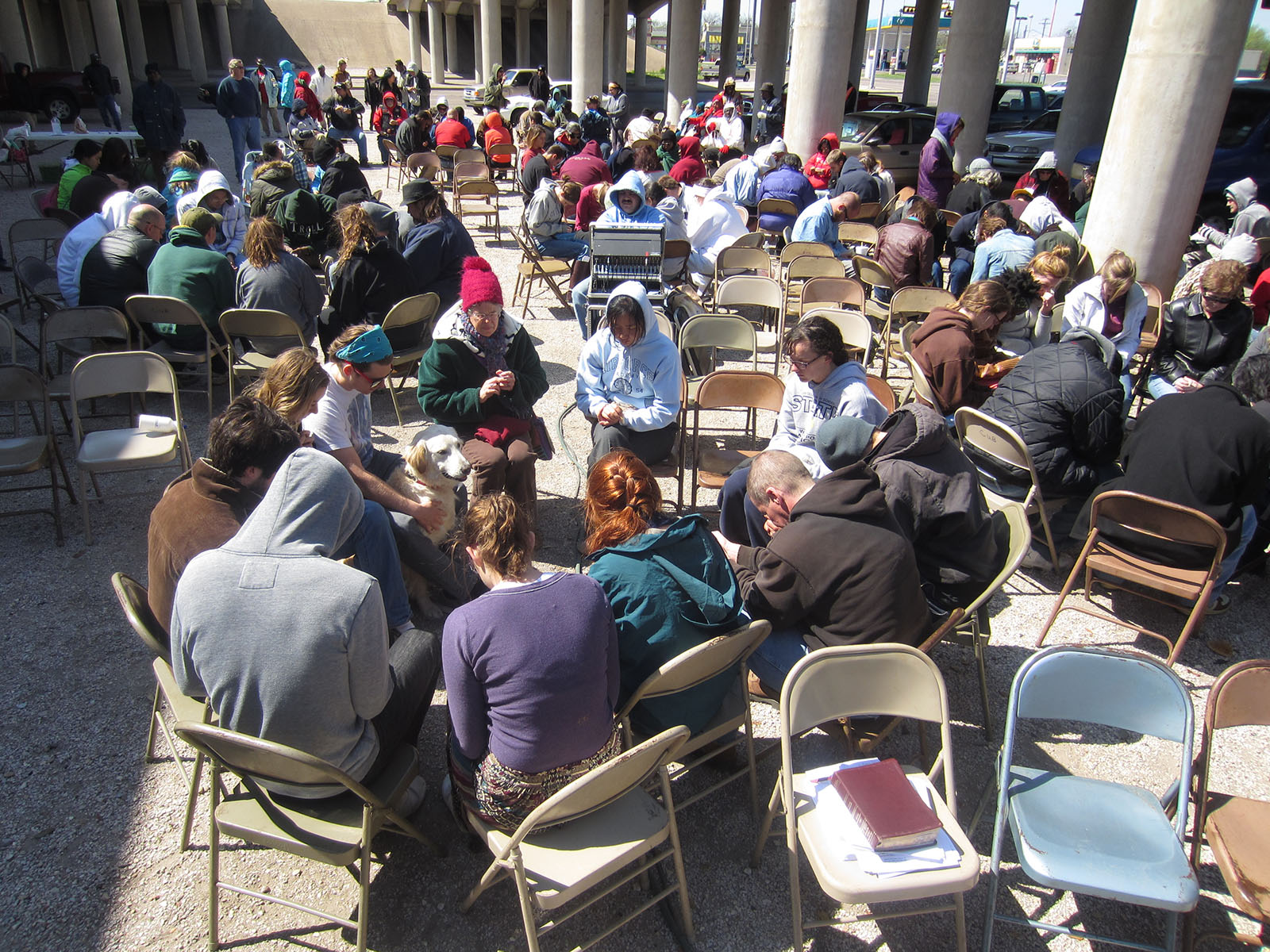
Worshipers at Church under the Bridge in Waco, Texas, break into small groups to pray on a Sunday morning.
Who comes to worship?
Today we are multi-cultural … but our next step is how to become more diverse with blacks and whites and browns. … We have an African-American associate pastor. He just came. We had prayed and waited 13 years for that to happen. … We are still waiting on an Hispanic and a female pastor. … We have schizophrenics walking around while we’re doing church. It’s loud. We’ll have a hippie band one Sunday followed by an Hispanic band. … We have Catholics and atheists and Baptists and Methodists and we stay around the centrality of Christ. We don’t have to fight over doctrinal issues — we deal with those occasionally in Bible study.Did you have any models for the church when it began?
There weren’t really any models that were doing it that way. There were cases of rich white people going to preach to poor black people, but that didn’t feel right. … It’s been really fun to learn together to be church.
Is there a common philosophy or theology underlying the church’s practices?
It’s the dignity of humans because the ex-offender and the prostitute are just as important to us as the Pharisee. … We can look them in the eye and be their friend. We have certain principles, such as no clergy-laity distinction. I won’t let them get into that language. … On our website there are nine core values, such as being committed to being multicultural, working among the poor and not being enamored by buildings.
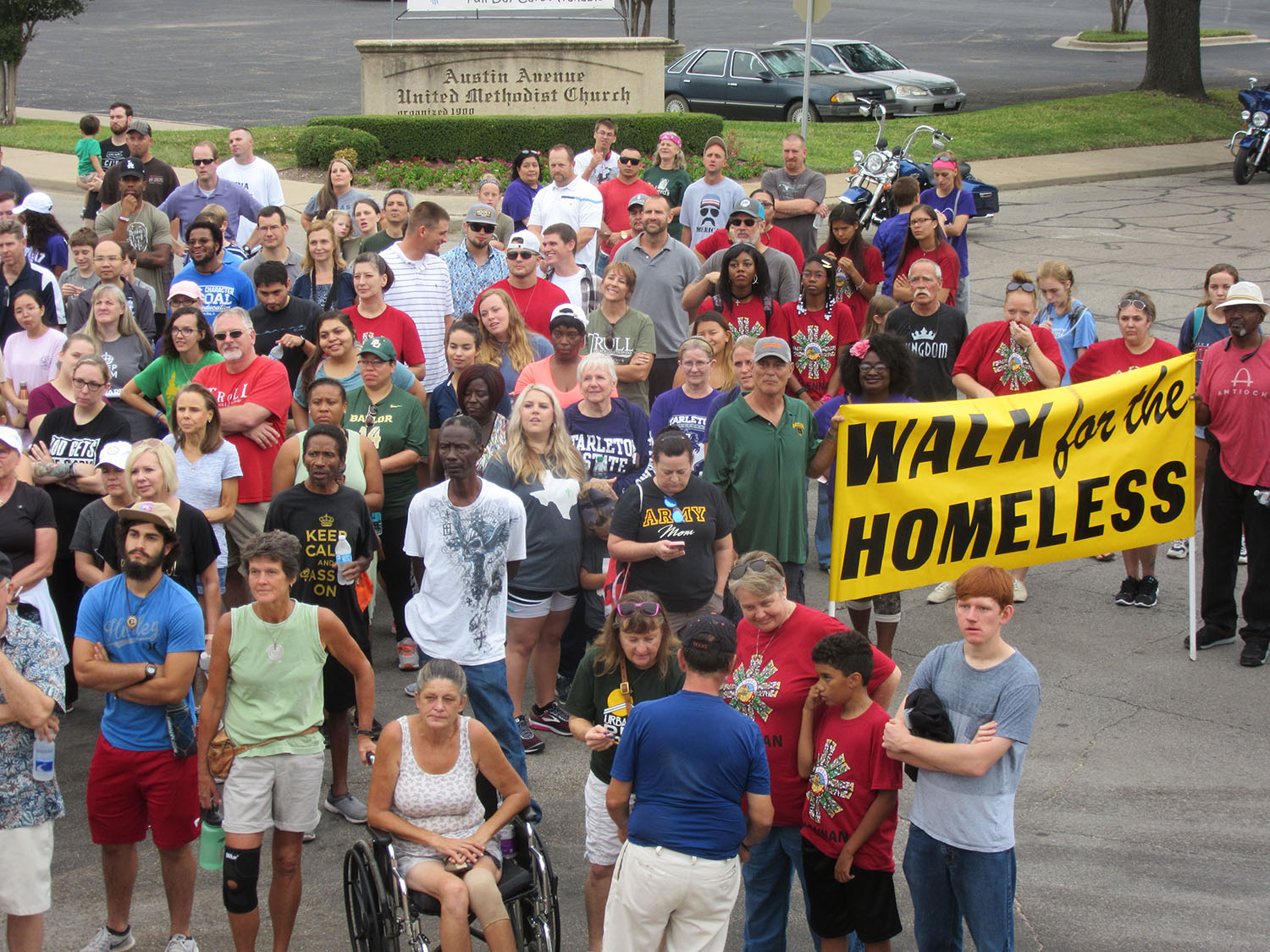
The congregation of Church Under the Bridge teaches the importance of social justice. Its membership is made up of a wide socio-economic, racial and denominational backgrounds – including atheists, Catholics and Methodists.
Has the order or style of worship changed since the beginning?
It’s always been free flowing in the sense that we listen to people. At least once or twice a year we take a survey about what’s not being preached, what kind of small groups don’t we have. Creativity is a really big part of who we are.
How important are the church’s goals — like being inclusive and multicultural — in the nation’s current cultural and political situation?
It’s huge. My conviction is we don’t talk about issues very well in the church. I grew up in a church were we never talked about race. The body of Christ should be breaking the barriers. …
I have 52 weeks where churches come in and serve meals to our congregation, even from Dallas. Every denomination. We even had Hooter’s show up a few years ago. Middle-class churches are drawn to it. … The church needs to be leading the way through this dark time in our nation. I don’t need to slam [Donald] Trump, but I can say we are going to embrace the stranger. The church has an ethic and a way of doing life that the world should be attracted to.

